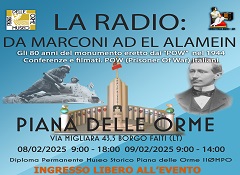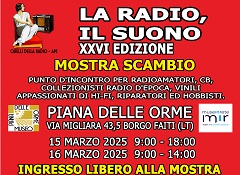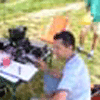WRC-19 Approves Region 1 50 MHz Amateur Allocation
Thursday, 21 November 2019 07:25
Written by Hans Blondeel Timmerman
Sharm El-Sheikh, Egypt, 21 November 2019
The World Radiocommunication Conference WRC-19 has approved an allocation in the 50 MHz band for amateurs in Region 1. The decision will now be incorporated in the Final Acts of the conference.
The decision comes after more than three weeks of strenuous negotiations to reconcile widely disparate views of Region 1 administrations. The result is a dramatic improvement in the international Radio Regulations for amateurs in Region 1. Before WRC-19 there were only 11 countries in Africa with a primary allocation in the band. When the Final Acts take effect, on a date that has not yet been determined, there will be 44 countries in Region 1 with a primary allocation of at least 500 kHz including 26 countries with a primary allocation of the entire band 50-54 MHz. The entire region will have an amateur secondary allocation of 50-52 MHz except in the Russian Federation, whose administration opted for only 50.080-50.280 MHz on a secondary basis. There are provisions to protect the other existing services that use the band in Region 1 and neighboring countries in Region 3. The existing primary allocation of 50-54 MHz in Regions 2 and 3 is unaffected. The exact manner in which the allocations will be implemented in Region 1 countries will be determined by each administration and may be either more generous or less, depending on national considerations.
The WRC-19 decision on its agenda item 1.1 is the culmination of years of effort by the IARU and its member-societies, mainly in Region 1 but with support from the other two regions. The ITU Radiocommunication Sector working group in which preparations were conducted was chaired by Dale Hughes, VK1DSH, of Australia who also was chosen to chair the sub working group dealing with the item at the WRC. The sub working group, designated 4C1, held 10 meetings before reaching an agreement that could be forwarded to Working Group 4C where additional discussions and adjustments took place. Committee 4 received the output of 4C on Tuesday, 12 November and performed additional fine-tuning before recommending the results for adoption by the conference Plenary. Consideration by the Plenary was delayed while a narrow issue in one footnote was resolved.
IARU Vice President Ole Garpestad, LA2RR, who is attending the WRC as a member of the Norwegian delegation, observed: “The successful outcome on Agenda Item 1.1 could only have come about through a team effort by the IARU member-societies and regional organizations, and especially by the volunteers who have devoted countless hours to preparing documents and attending meetings over the past three years. Our thanks go to everyone who has contributed to this effort, including the radio amateurs who support the IARU through membership in the IARU member-society in their country.” LA2RR coordinated overall IARU preparations for WRC-19. Dave Court, EI3IO, led the IARU effort on Agenda Item 1.1 which engaged all six regional telecommunications organizations: ASMG for the Arab States, ATU for Africa, CEPT for Europe, RCC for Russia and several countries of the former Soviet Union, CITEL for Region 2, and APT for Region 3. Region 1 Secretary Hans Blondeel Timmerman, PB2T, was coordinator for the item on behalf of CEPT on whose proposal the ultimate compromise was largely based.

Written by Hans Blondeel Timmerman
Sharm El-Sheikh, Egypt, 21 November 2019
The World Radiocommunication Conference WRC-19 has approved an allocation in the 50 MHz band for amateurs in Region 1. The decision will now be incorporated in the Final Acts of the conference.
The decision comes after more than three weeks of strenuous negotiations to reconcile widely disparate views of Region 1 administrations. The result is a dramatic improvement in the international Radio Regulations for amateurs in Region 1. Before WRC-19 there were only 11 countries in Africa with a primary allocation in the band. When the Final Acts take effect, on a date that has not yet been determined, there will be 44 countries in Region 1 with a primary allocation of at least 500 kHz including 26 countries with a primary allocation of the entire band 50-54 MHz. The entire region will have an amateur secondary allocation of 50-52 MHz except in the Russian Federation, whose administration opted for only 50.080-50.280 MHz on a secondary basis. There are provisions to protect the other existing services that use the band in Region 1 and neighboring countries in Region 3. The existing primary allocation of 50-54 MHz in Regions 2 and 3 is unaffected. The exact manner in which the allocations will be implemented in Region 1 countries will be determined by each administration and may be either more generous or less, depending on national considerations.
The WRC-19 decision on its agenda item 1.1 is the culmination of years of effort by the IARU and its member-societies, mainly in Region 1 but with support from the other two regions. The ITU Radiocommunication Sector working group in which preparations were conducted was chaired by Dale Hughes, VK1DSH, of Australia who also was chosen to chair the sub working group dealing with the item at the WRC. The sub working group, designated 4C1, held 10 meetings before reaching an agreement that could be forwarded to Working Group 4C where additional discussions and adjustments took place. Committee 4 received the output of 4C on Tuesday, 12 November and performed additional fine-tuning before recommending the results for adoption by the conference Plenary. Consideration by the Plenary was delayed while a narrow issue in one footnote was resolved.
IARU Vice President Ole Garpestad, LA2RR, who is attending the WRC as a member of the Norwegian delegation, observed: “The successful outcome on Agenda Item 1.1 could only have come about through a team effort by the IARU member-societies and regional organizations, and especially by the volunteers who have devoted countless hours to preparing documents and attending meetings over the past three years. Our thanks go to everyone who has contributed to this effort, including the radio amateurs who support the IARU through membership in the IARU member-society in their country.” LA2RR coordinated overall IARU preparations for WRC-19. Dave Court, EI3IO, led the IARU effort on Agenda Item 1.1 which engaged all six regional telecommunications organizations: ASMG for the Arab States, ATU for Africa, CEPT for Europe, RCC for Russia and several countries of the former Soviet Union, CITEL for Region 2, and APT for Region 3. Region 1 Secretary Hans Blondeel Timmerman, PB2T, was coordinator for the item on behalf of CEPT on whose proposal the ultimate compromise was largely based.




 . . . . . . . . . . .
. . . . . . . . . . . 







